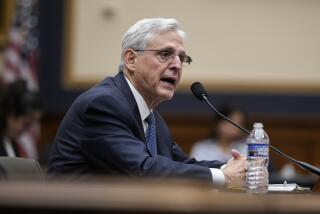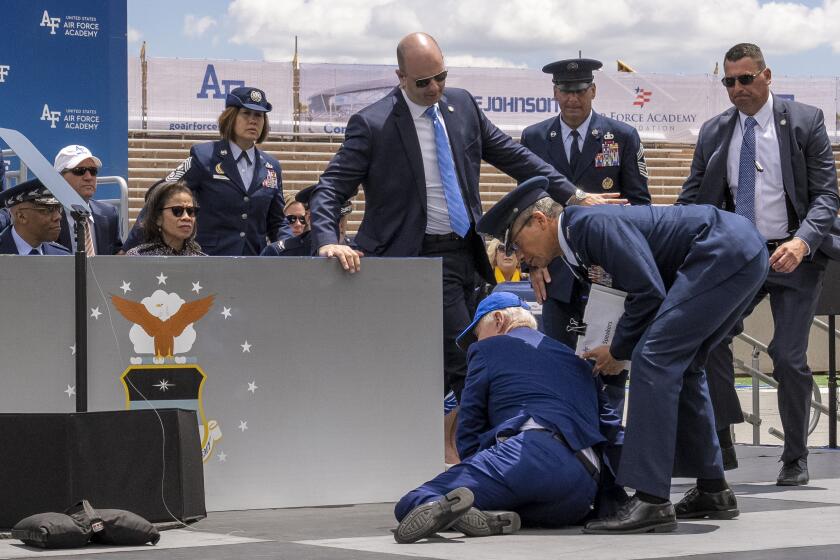The president’s mouthpiece
- Share via
WHAT A DIFFERENCE eight years makes. In 1998, then-Atty. Gen. Janet Reno was repeatedly battered by Congress for showing insufficient independence from President Clinton (by naming only seven independent counsels instead of nine to investigate his administration). Republicans in one House committee issued Reno a rare contempt citation for refusing to cough up internal memos, while U.S. Circuit Judge Laurence H. Silberman opined that she was “in effect acting as the president’s counsel under the false guise of representing the United States.”
In 2006, the independent counsel law is gone, many Republicans have rediscovered the joys of White House secrecy, and the attorney general not only acts like the president’s counsel, he was the president’s counsel for four critical years. So it should come as no great surprise that Alberto R. Gonzales sounded more like a White House spokesman on Monday than the country’s chief law enforcement officer. But that doesn’t make the attorney general’s testimony before the Senate Judiciary Committee about the National Security Agency’s warrantless surveillance of U.S. citizens any less disappointing.
Gonzales’ case for ignoring the judicial oversight mandated by the 1978 Foreign Intelligence Surveillance Act rests on three wobbly pillars. First is the bizarre notion that Congress’ Sept. 14, 2001, resolution authorizing force against Al Qaeda also covered the domestic spying program. To which committee Chairman Arlen Specter (R-Pa.) gave the correct response: “The president does not have a blank check.”
Strange, too, was Gonzales’ repeated insistence that past chief executives, going all the way back to George Washington, had the specific power that President Bush seeks to exercise. The first president had many talents, but time travel to 1978 wasn’t one of them. And the relevance of that specific law is one of the main subjects of these hearings.
The administration continues to confuse Article II of the Constitution -- which enumerates the president’s duties as commander in chief -- with justification for disregarding the other two branches of government. Article II does give the president power, but the Constitution also has a couple of other articles -- the first and third, if anyone from the administration feels like looking them up -- outlining the powers of Congress and the judiciary, respectively.
It’s hard to say what’s more disturbing: the attorney general’s unsound legal reasoning or his transparent efforts to avoid a legal conversation altogether in favor of emotional appeals aimed squarely at the court of public opinion. Practically the first words of his opening statement were: “Al Qaeda and its affiliates remain deadly dangerous.”
As several senators reminded him, the hearings are not a contest to see who hates Al Qaeda more. They’re to find out about the NSA’s secret program and to see whether the White House accepts any restraints on its power. If the attorney general can’t be independent, the least he can do is explain the law.
More to Read
Get the L.A. Times Politics newsletter
Deeply reported insights into legislation, politics and policy from Sacramento, Washington and beyond. In your inbox twice per week.
You may occasionally receive promotional content from the Los Angeles Times.









